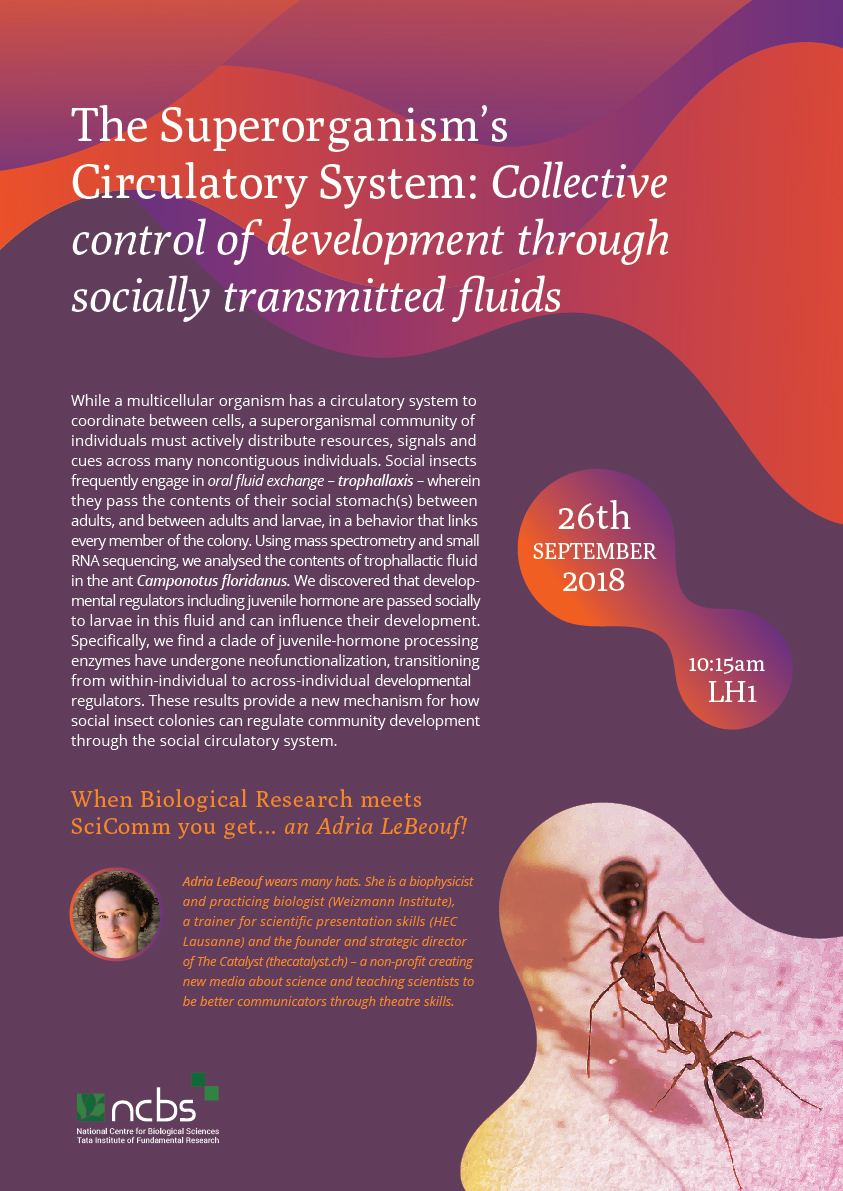The Superorganism’s circulatory system: Collective control of development through socially transmitted fluids
Time: 10.15am
Venue: LH1, NCBS
Audience: internal event for Bangalore Life Sciences Cluster members
Like any growing organism, a superorganism must assess and distribute resources to grow and develop optimally given its available means. How has evolution engineered distributed decision-making mechanisms for long-term collective processes? While a multicellular organism has a circulatory system to coordinate between cells, a superorganismal community of individuals must actively distribute resources, signals and cues. Social insects frequently engage in oral fluid exchange–trophallaxis–wherein they pass the contents of their social stomach(s) between adults, and between adults and larvae in a behavior that links every member of the colony. Using mass spectrometry and small RNA sequencing, I analysed the contents of trophallactic fluid in the ant Camponotus floridanus. I discovered that developmental regulators including juvenile hormone are passed socially to larvae in this fluid and can influence their development. Phyloproteomic comparison of trophallactic fluid across two other ants and the honey bee revealed that approximately one-third of socially transmitted proteins are regulators of growth and development. Specifically, we find a clade of juvenile-hormone processing enzymes in the genus Camponotus undergoing neofunctionalization as they take on a role in this socially transmitted fluid. By observing both development and the social exchange of fluids between queen ants and their larvae through a novel combination of computer vision and fluorescent microscopy we quantitatively observe how this fluid directs growth. Together, these results suggest that trophallaxis underlies a private communication channel that can have multiple phenotypic consequences including direction of larval development, and provide a new mechanism for how social insect colonies regulate community development through collective decision-making over the social network.
About the speaker: Adria LeBeouf wears many hats. She is a biophysicist and practicing biologist (Weizmann Institute), a trainer for scientific presentation skills (HEC Lausanne) and the founder and strategic director of The Catalyst (thecatalyst.ch) – a non-profit creating new media about science and teaching scientists to be better communicators through theatre skills. http://adrialeboeuf.com/
*Adria is also part of swissnex's ScienceComm India’18 on September 27 hosted at NCBS, where she will be speaking on the topic, “Learning while laughing: Transforming science and scientists through play”.



